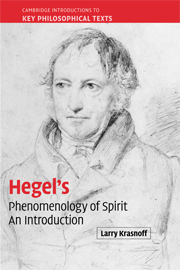4 - Idealism
Published online by Cambridge University Press: 23 December 2009
Summary
In the previous chapter, I argued that Rousseau's challenge to Hobbes' contractarian account of normativity created a second, specifically philosophical problem of freedom. Freedom was a crucial category in Hobbes' and Locke's accounts of morality and politics, but their primary understanding of freedom was a straightforwardly physical and thus philosophically unproblematic notion of freedom: freedom from the physical restraints of external forces, and particularly of the physical violence of other human beings. This understanding of freedom poses no theoretical difficulties, and so the challenges that Hobbes and Locke faced were mainly practical or political: they had to convince people that moral norms and political institutions existed just to protect people from physical harm, and not to serve any “higher” ethical or religious ends. That project was quite radical, in its way, but carrying it out did not require any special philosophical work.
Rousseau's problem, by contrast, requires a very different sort of solution. Unlike Hobbes or Locke, he was not trying to argue for a new account of the end or goal of moral and political norms. Instead he was arguing that an essential feature of those norms – their socially imposed nature – suggested that they were all invalid, no matter what account anyone gave of their end or goal. For no matter what beneficial social purposes moral and political norms might be taken to serve, those purposes would still be social purposes, and thus they would be imposed on each of us as individuals.
- Type
- Chapter
- Information
- Hegel's 'Phenomenology of Spirit'An Introduction, pp. 45 - 61Publisher: Cambridge University PressPrint publication year: 2008

